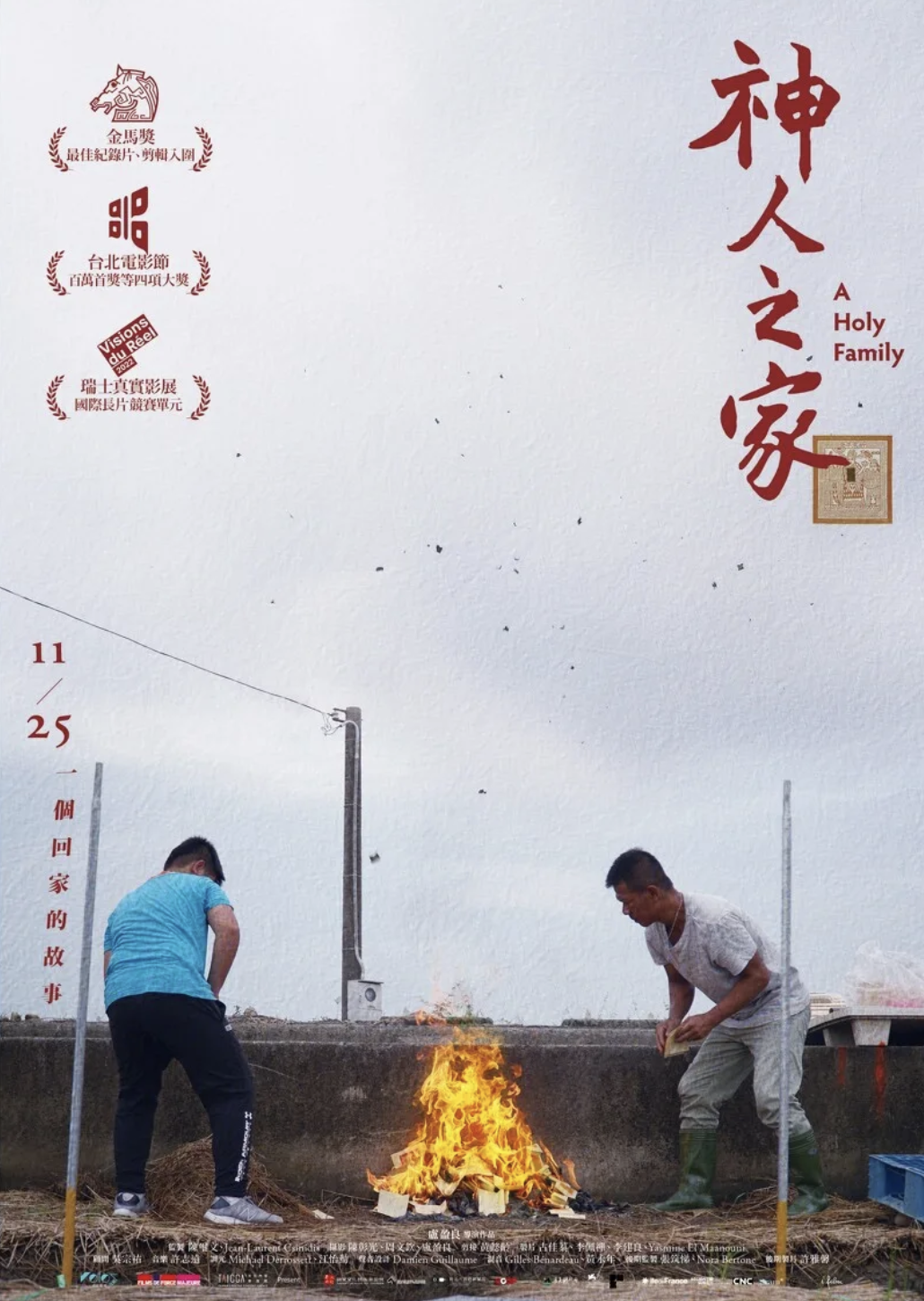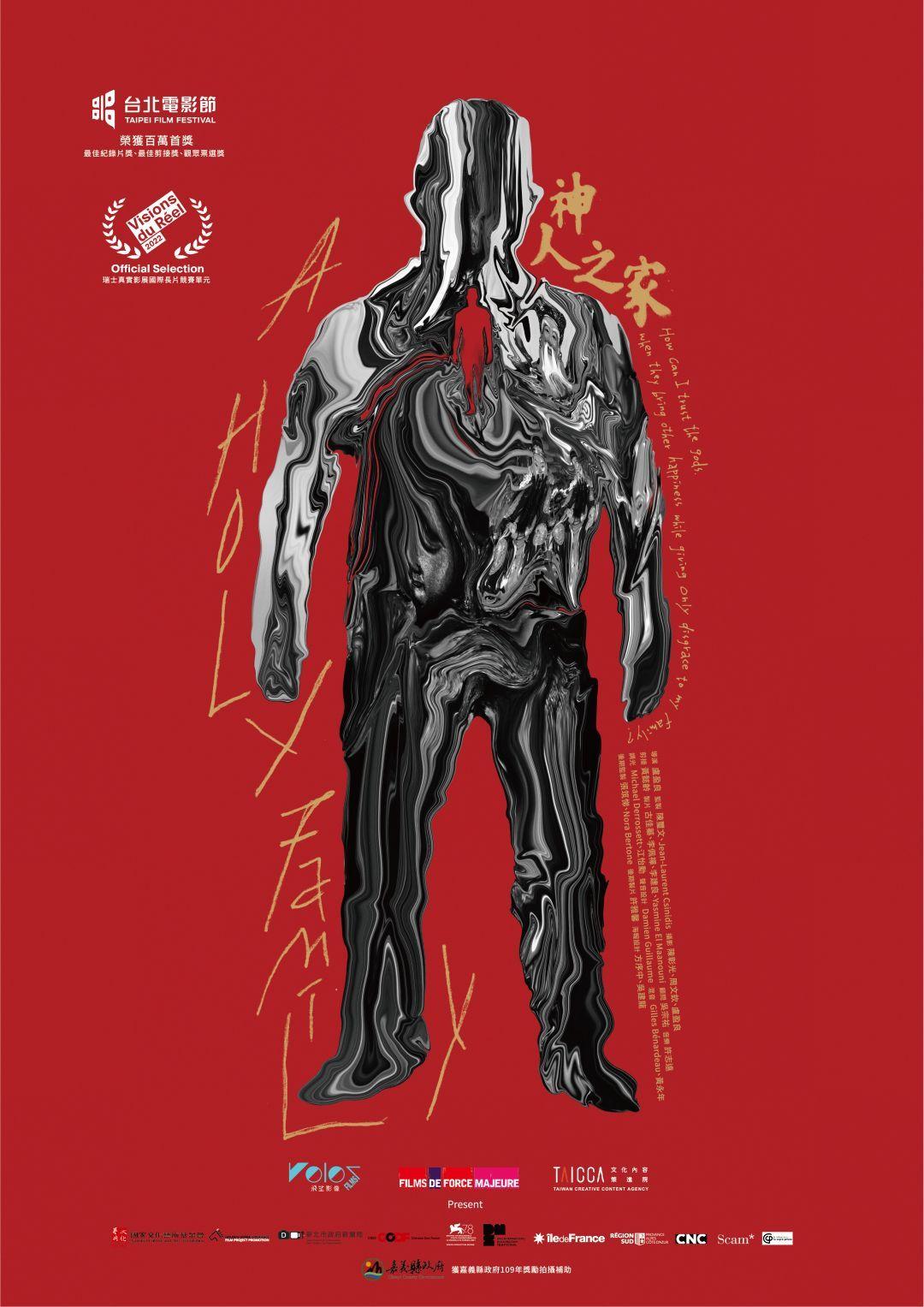by Brian Hioe
語言:
English
Photo Credit: Film Poster
A HOLY FAMILY (神人之家) is an insightful documentary that examines family dynamics. The movie follows the filmmaker, Elvis Lu, as he films his estranged family.
While Lu seems to have found comparative success in Taipei as a filmmaker, his family lives in poverty in the countryside. Lu’s older brother is a farmer, but has faced continual poor harvests, and so changes from crop to crop in the hopes of a better outcome.
In the meantime, Lu’s father is also the source of much of the family’s financial woes, beset by an apparent addiction to gambling. As a result, Lu’s father has gambled away the family’s wealth–including land formerly owned by the family–and he continually borrows money from other relatives.
Consequently, Lu has a distant relationship with the rest of the family, having spent twenty years mostly avoiding them. But Lu begins to make the film after his mother asks about funeral portraits for when she and his father pass away.
The film takes its title from the fact that the family frequently consults the gods on the family altar for advice. Lu’s older brother is a medium, hearing voices from the two gods on the altar, and seeking advice on harvest dates. Occasionally, he gets paying clients, but this is not particularly profitable, as mediums only get paid as a form of donation.
Likewise, belief in the gods seems to egg on their father to gamble. In particular, Lu’s father is constantly asking about lotto numbers from the gods, claiming to see numbers in his dreams, or even in smoke from the cigarettes he smokes. This takes place even as his health otherwise deteriorates.

Film poster
In this way, A Holy Family explores the nature of faith. Lu openly questions his brother and other members of the family about whether their belief in the gods does them any good–or whether the gods are real at all.
The movie does not resolve these questions, but keeps them open-ended. Lu’s brother becomes less interested in consulting the gods after a poor harvest, but his son seems upset afterward, suggesting that belief knits together the family in some way.
A Holy Family also hones in on the changing relationship between the members of the Lu family. Lu maintains a fly-on-the-wall approach in early parts of the movie, stating that his interest in filming his family members is to find answers about himself. Lu also seems to be trying to understand some of the riddles of his family’s behavior, such as their blind faith in the gods, or his father’s addiction to gambling. Lu is at times harsh, even confrontational with his parents and siblings.
By the end of the film, Lu’s relationship with his family seems to have changed for the better. Members of the family gradually appear to become warmer and more candid with each other as time goes on, even if there is no resolution to their issues with poverty.
A Holy Family is understated, preferring to document moments of everyday life and daily conversation, but it accomplishes a great deal with this. The movie can be situated in the broader genre of Taiwanese documentary exploring the family dynamics of the filmmaker in recent years, the most famous example of which internationally may be Small Talk. But the movie does not conclude with any climactic emotional resolution in the manner of Small Talk, instead taking a more gradual approach.
If there is a flaw to the film, it seems to be that Lu’s relationship with some members of the family are zoomed in on at the expense of others. None of the female family members beside Lu’s mother are depicted to a significant extent in the film, even if they appear in the background. And Lu’s mother is also the family member that receives the least amount of attention.
Nevertheless, if not exactly groundbreaking, A Holy Family strikes precisely the right balance of understated and probing. The movie does not conclude with Lu having achieved any concrete answers about his family, per se, but it is self-evident that he has come to a better understanding of them–and the viewer, too, might come away with a better understanding of the complications of family dynamics.



